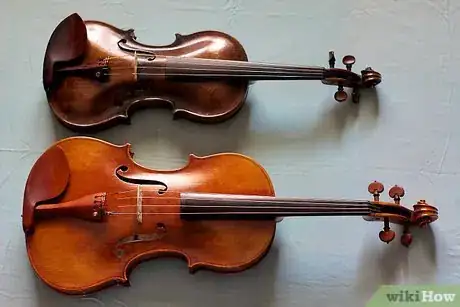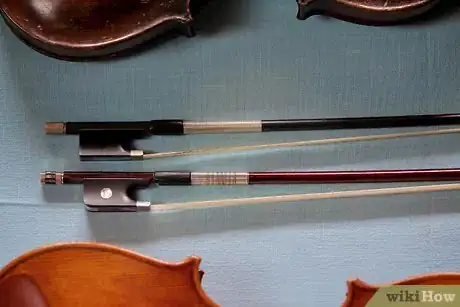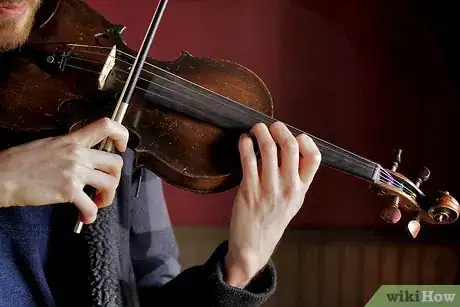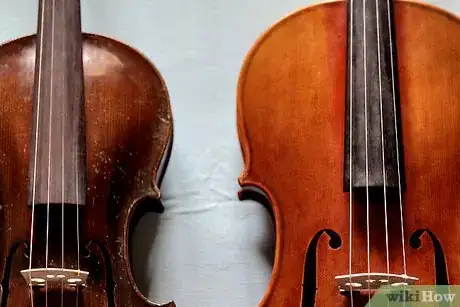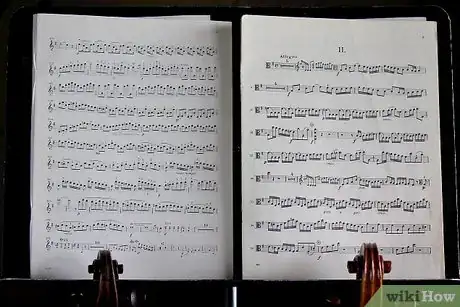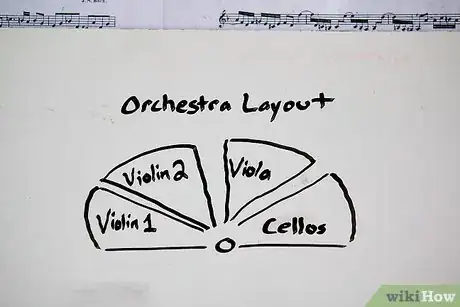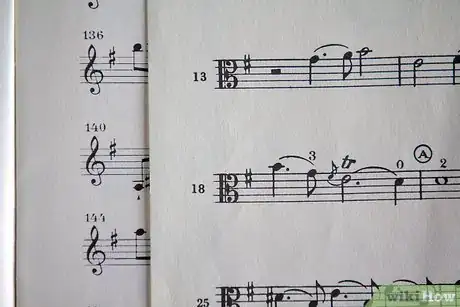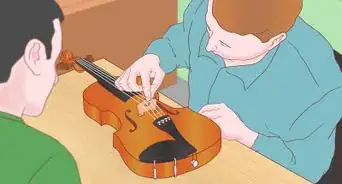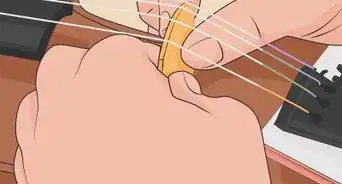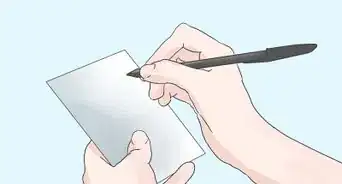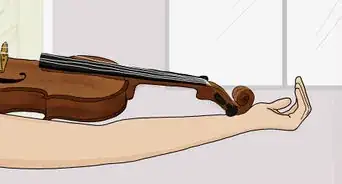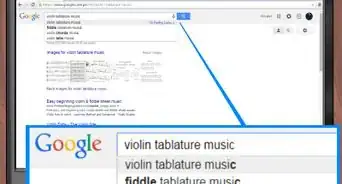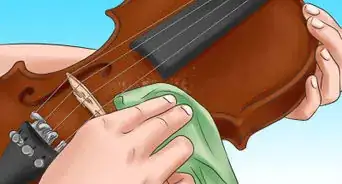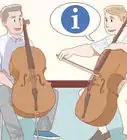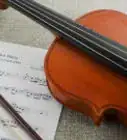wikiHow is a “wiki,” similar to Wikipedia, which means that many of our articles are co-written by multiple authors. To create this article, 37 people, some anonymous, worked to edit and improve it over time.
wikiHow marks an article as reader-approved once it receives enough positive feedback. In this case, 92% of readers who voted found the article helpful, earning it our reader-approved status.
This article has been viewed 269,093 times.
Learn more...
The violin and viola are similar in a number of ways. They both have the same general shape and shares three strings. However, if you look and listen, you will be able to tell the difference. They both make beautiful sounds, but while they seem similar, they are actually very different.
Steps
-
1Distinguish by the frame size. Is the instrument big or small? The violin generally has a smaller frame than the viola.
-
2Observe and weigh the bow. The bow is the long wooden stick with horse hair on it that is used to play a stringed instrument. If the end which you hold the bow (the frog) is a straight 90 degree angle it is a violin bow, whereas the viola bow is a 90 degree angle with a curved corner. Moreover, the viola usually has a heavier bow.Advertisement
-
3Listen to the pitch of the strings. Is it lower or higher? The violin has a higher e-string while the viola has a lower c-string.
-
4Notice the strings. The violin string order from lowest to highest is: G, D, A, E. Violas do not have an E string, but an additional lower note, making their string order from lowest to highest: C, G, D, A.
-
5Pay attention to their pitching. Violins generally play higher pitched parts of the music while Violas play lower pitched parts. However both instruments use much of the same techniques in playing and require the same level of training and dedication to master.
-
6Know by inquiry.
- If it is a solo, check the printed program to identify the instrument being played.
- If it is an orchestra, the strings nearer to you (the audience) on the left are the violins. The first instruments to the left of the conductor are the "first" violins. The next section is the "second violins". The next section usually contains the violas, but occasionally the violas might be placed directly opposite of the first violins.
-
7If you can, check the musical clefs. Violins read treble clef while violas read mainly alto clef (and occasionally treble clef).
Community Q&A
-
QuestionHow big is a viola?
 Community AnswerIt depends on the viola. 15 to 16 inches are all pretty standard sizes, but a player can, and often will, work up to a larger size. This is because the larger the viola is, the more rich the sound.
Community AnswerIt depends on the viola. 15 to 16 inches are all pretty standard sizes, but a player can, and often will, work up to a larger size. This is because the larger the viola is, the more rich the sound. -
QuestionHow are the violin and viola similar?
 Community AnswerThe violin and viola are similarly shaped. They both have four strings (violin has G, D, A and E; viola has C, G D, and A). Both are also held in the same position under the chin and held up by the shoulder.
Community AnswerThe violin and viola are similarly shaped. They both have four strings (violin has G, D, A and E; viola has C, G D, and A). Both are also held in the same position under the chin and held up by the shoulder. -
QuestionIs one easier to learn to play than the other?
 Community AnswerNot really. The violin is higher-pitched with an E-string, while the viola has a C-string. It really just depends on personal preference.
Community AnswerNot really. The violin is higher-pitched with an E-string, while the viola has a C-string. It really just depends on personal preference.
Warnings
- If you call a viola a violin, violists will be very upset. The equivalent would be mistaking a Canadian for an American.⧼thumbs_response⧽
- Musicians are very often sensitive artists. They may not want to have the instrument they are using touched or held by people other than themselves. By treating both the instrument and the person with respect, it is possible to learn a lot about the history and the nature of the instrument they play.⧼thumbs_response⧽
- Violins and Violas can be very expensive and are somewhat fragile. Many of the top quality instruments are hundreds of years old. Be very, very careful when sitting and moving quickly in the vicinity of either instrument.⧼thumbs_response⧽
